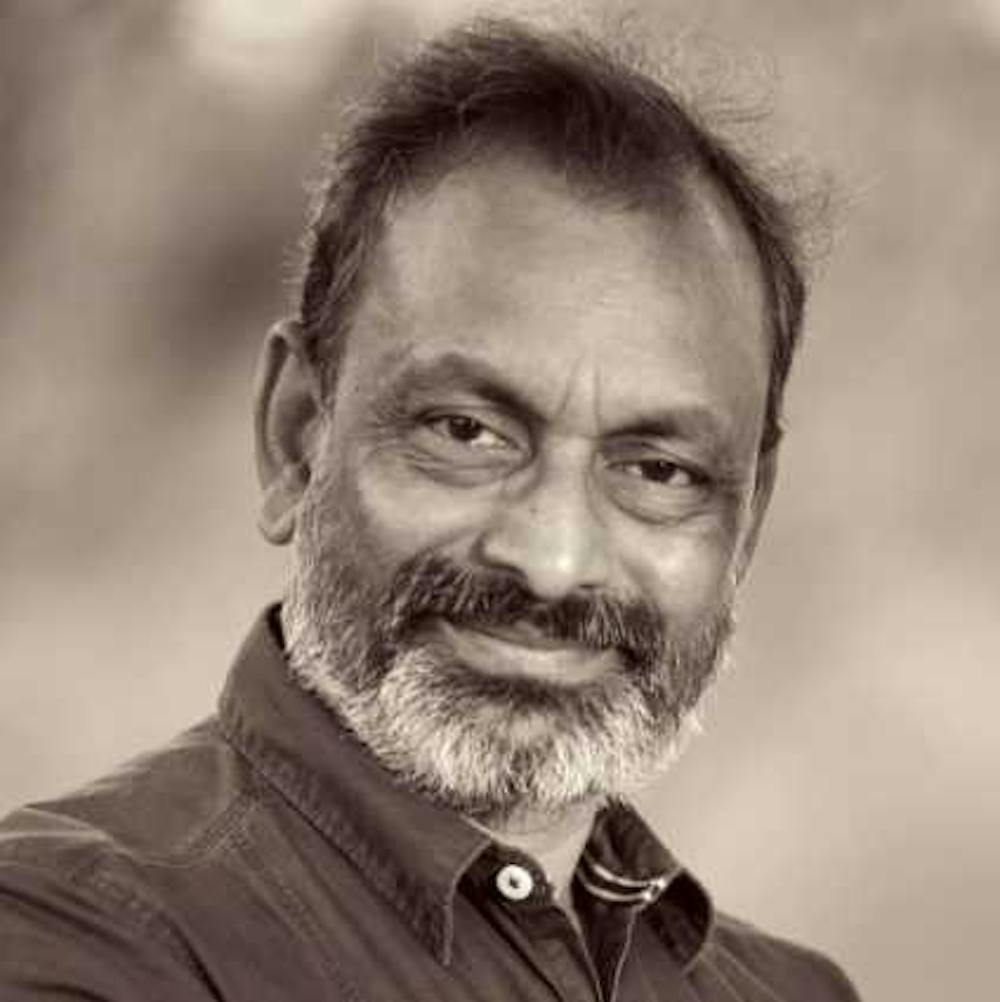Indian Fulbright Scholar Satyabrata Rout reflects on his experiences
Director Satyabrata Rout wasn’t always a director.
Born and raised in Odisha, India, his plan was to become a doctor -- or at least that was his father’s dream for him. After three years of schooling in medicine, Rout dropped out and applied to the National School of Drama in New Delhi to pursue his aspirations in theater. Years and multiple awards later, Rout became a Fulbright scholar and made Central Michigan University the next stop in his journey.
The Fulbright Program is a cultural exchange program that aims to enhance global relations by awarding professionals with scholarships or grants to exercise their talents abroad.
“As a Fulbright scholar, you must be a cultural and educational ambassador who can bridge a gap between two countries,” Rout said. “(I applied because) I wanted to develop a project to spread my culture and bring back experience for my students in India.”
To be selected for the Fulbright Program, Rout had to go through a strenuous process. He had to meet various application requirements, write a project proposal, find participating American universities and undergo an interview procedure by the Fulbright panel.
“I developed a project based off the interest of our students,” Rout said. “India is honestly a very poor country. Financially, it’s rising up, but we have one thing to offer the world and that is our philosophy. So I decided to do an ancient production, something I could pass to younger generations here.”
That project is the Indian 5th-century play "Shakuntala" that was performed at Bush Theatre from Oct. 4th to Oct. 14th. Although Rout is familiar with the story of "Shakuntala," his specialization is mostly in contemporary theater.
“'Shakuntala' was a completely new play for me. Though I know the material, it was a different form of presentation,” Rout said. “However, through the language in 'Shakuntala', I applied my (skills for) creating visuals.”
While working on "Shakuntala" was a new experience for Rout, it was an even more novel experience for Assistant Director Annette Thornton and the production's cast. In learning a completely unfamiliar style of theater, the cast and assistant director said the experience enriched their lives.
Detroit sophomore Yasmeen Duncan played the production's namesake.
“Once we got past the language and stylistic barrier, (the production of 'Shakuntala') all came together,” Duncan said. “I definitely learned a lot from Professor Rout.”
Rout, Duncan and Thornton all agree that they left the production with life-long takeaways.
“There was such humility in the whole process and that I think was amazing because everything down to the smallest deer or hermit was important in telling the story and the actors understood that,” Thornton said. “A lot of the times in theater, we want the story to be about us, about our ego, but that wasn’t the case here.”
Working with Rout has inspired Thornton to consider applying for a Fulbright scholarship to Rout’s university in India and Duncan plans on carrying the lessons learned from "Shakuntala" far into her future.
“I’d say this experience has added to my overall view on life,” Duncan said. “Understanding the connection you have to the world and earth and what your part is brings everything full circle. Everything is universal and even though we’re from different places, we’re all connected and deeply rooted together.”
Rout will stay in the US until the end of the school year .Though he is not directing any more performances at CMU, he plans on travelling, attending lectures and teaching at workshops.
“I think my purpose for coming here has been fulfilled,” Rout said. “The students learned how flexible theater really is. They’ve been taught they need 'this,' they need 'that,' but as a director, all I need is space and some actors -- not even lights or a set or costumes. The actor’s soul and spirit is more important (than anything else).”
As for his own takeaways, Rout has been in contact with his students in India on the things he’s learned here, including technology and software programs. He and his university president have already considered putting together an entirely American theater production upon his return.
Before the showing of "Shakuntala," Rout was interested to see how an American audience would react to the material. Now, he has his answer.
“I found that human emotion is ultimately the same,” Rout said. “When we’re happy, we dance; when we’re sad, we cry. This is human nature, so how can I compare an Indian audience to an American one when we’re all the same? Whether it is a comedy or satire or tragedy, the audience must gain an experience.”







